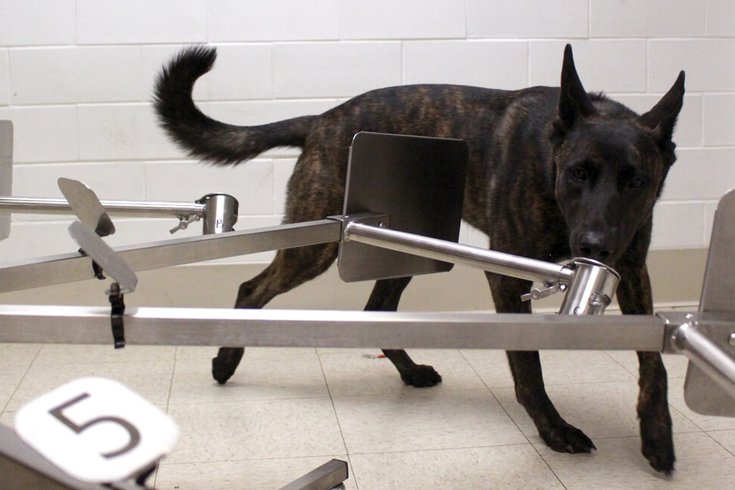
April 29, 2020
 Source/Penn Vet
Source/Penn Vet
The University of Pennsylvania's School of Veterinary Medicine will study whether dogs can sniff out COVID-19 samples in a laboratory setting. If the canines prove capable, they could be used in the future to help detect the virus in environments where it is frequently transmitted.
Researchers at the University of Pennsylvania's School of Veterinary Medicine are investigating whether dogs can distinguish between positive and negative samples of COVID-19.
The first-of-its-kind study relies on dogs' hyper-developed sense of smell, which is commonly used to aid law enforcement investigations. Canines have as many as 300 million smell receptors compared to about six million in humans.
Dogs' contributions to disease detection are less well-known, but could become a "force multiplier" in efforts to prevent the spread of COVID-19.
"Scent detection dogs can accurately detect low concentrations of volatile organic compounds, otherwise known as VOCs, associated with various diseases such as ovarian cancer, bacterial infections and nasal tumors," Cynthia Otto, director of Penn Vet’s Working Dog Center said. "These VOCs are present in human blood, saliva, urine or breath.
"The potential impact of these dogs and their capacity to detect COVID-19 could be substantial. This study will harness the dog’s extraordinary ability to support the nation’s COVID-19 surveillance systems, with the goal of reducing community spread.”
If the dogs prove capable of picking up on COVID-19, they could be trained to help detect asymptomatic cases and the presence of the virus in hospital and business environments.
The study will begin with eight dogs undergoing a process known as odor imprinting. The dogs will be exposed to COVID-19 positive saliva and urine samples in a lab setting, enabling researchers to figure out whether they can accurately distinguish between positive and negative samples.
If the dogs can detect the virus in a lab, a platform will be established to expand experimental testing to detect COVID-19 among infected people.
Samples for the study will be taken from patients screened at the Hospital of the University of Pennsylvania and the Children's Hospital of Philadelphia.
Assistance and expertise in the study will be provided by the U.S. Army Combat Capabilities Development Command Chemical Biological Center.
The announcement of the study comes as states across the country prepare to begin easing some of the restrictions put in place to prevent the spread of COVID-19 – despite a stage of limited testing capacity and early research into SARS-CoV-2.
There has been some evidence that pets, including at least two cats and one dog, can become infected with COVID-19 via transmission from humans. These cases seem to be rare, and there is no evidence at this point that pets can transmit the virus to their owners.
The research at Penn Vet is just beginning, but it could offer a promising future mitigation strategy as public health researchers seek new methods to screen populations.